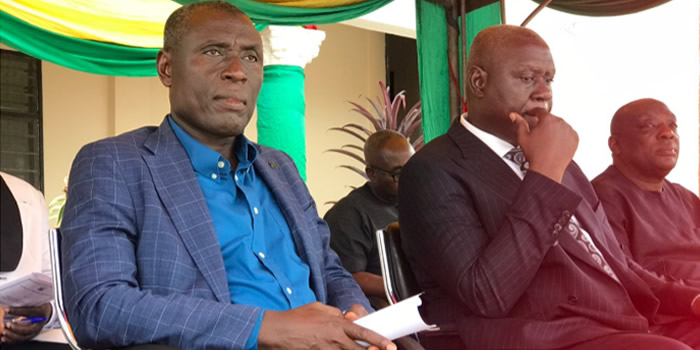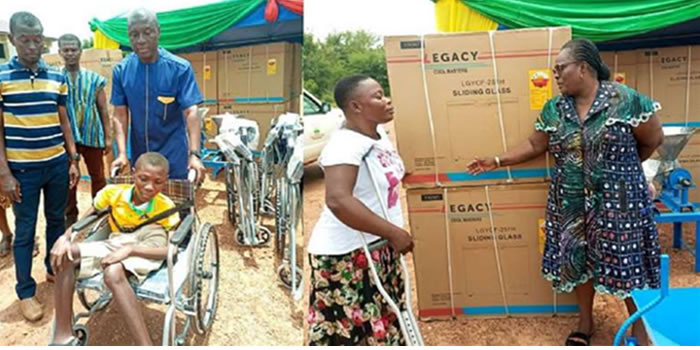

Vulnerability Analysis
The Department of Social Welfare as one of the decentralised department in the district has the responsibility to overseeing the activities of the vulnerable. Generally, vulnerable groups include women and children, persons with disability, orphaned and vulnerable children including children orphaned by HIV/AIDS and trafficked children, child labourers and the aged as result of cultural, social and economic factors.
Culturally, the general attitude towards women in the district is a bane on their development culminating in the disrespect for womanhood.This has been borne out of the belief that a woman without a child at 18 years would remain barren hence the early exposure to sex resulting in teenage pregnancies and early marriages with its attendant problems consequently affecting school enrolment and ultimately literacy levels among female. Again, the general perception of women as playing second fiddle to men and are only good for the kitchen has resulted in many girls of school going age being denied education.
Child neglect is very predominant in the district. It is estimated that 40% of children in the district are of single parent. This is a result of men denying responsibility of pregnancies and women going out with long distant haulage drivers who eventually neglect them and their babies. Furthermore, the disability and aged proportions of the population stand at 6% and 30% respectively. Since these groups of the population have either passed their productive ages or have no productive capacity as they have very little or no skill training worsens the dependency ratio.
To help sustain the lives and livelihood of the vulnerable, social protection mechanisms such as grants to the aged, small loans to women, etc to be put in place to empower women both socially and economically. Again, consistent social educational programmes on gender issues so as to enhance girl-child enrolment and women participating in developmental programmes are also recommended.The guidelines in the DACF with regards to PWD should be followed to the letter. Training programmes for children with disability and scholarship scheme for children with disability who want to pursue education to the highest level is also recommended.
HIV/AIDS issues must be taken seriously and step up BCC and stigmatization to be emphasized. Moreover, on account of the foregoing, there is the need, apart from intensifying sensitization programmes in the district, to re-examine the poverty reduction programmes, enhance micro credit schemes and organize entrepreneurial programmes for the vulnerable to enhance their access to improved living conditions. Government agencies have instituted educational and empowerment programmes in curbing the spread of the disease.
Date Created : 11/17/2017 5:46:32 AM









 facebook
facebook
 twitter
twitter
 Youtube
Youtube
 +233 593 831 280
+233 593 831 280 0800 430 430
0800 430 430 GPS: GE-231-4383
GPS: GE-231-4383 info@ghanadistricts.com
info@ghanadistricts.com Box GP1044, Accra, Ghana
Box GP1044, Accra, Ghana